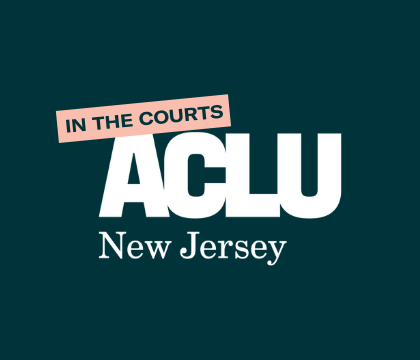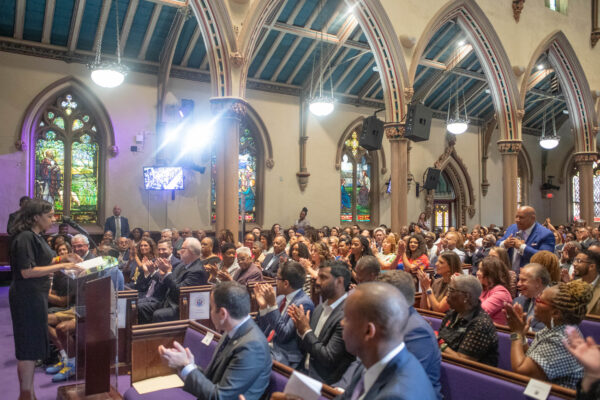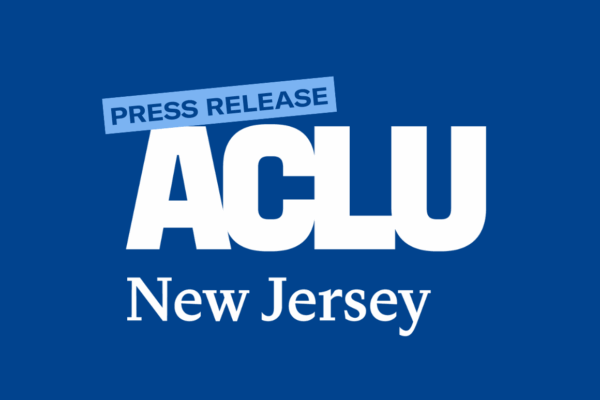After being sentenced to 75 years in prison in 2003 when he was 17 years old, James Comer was released today following his landmark appeals that ultimately eliminated de facto life sentences for children and created opportunities for young people to petition for early release. The court opinions in Mr. Comer’s cases, in which he was represented by the ACLU of New Jersey and Gibbons P.C., have already provided a second chance for nearly 100 young people in New Jersey who had been sentenced to extreme prison terms.
“It means the world to me to have the opportunity to rejoin my loved ones,” said James Comer. “I am forever grateful for this second chance and relieved that no child will face the hopelessness that I endured when I was effectively sentenced to die in prison.”
In 2003, Mr. Comer received a sentence of 75 years in prison with more than 68 years without parole for his role in four robberies and a felony murder when he was 17 years old. At the time of sentencing, no meaningful consideration was given to his youth or life experience. The ACLU of New Jersey and Gibbons P.C. first filed a motion to correct this illegal sentence on his behalf in 2014, arguing that a series of U.S. Supreme Court decisions prohibited sentencing minors to sentences that amount to life imprisonment without the possibility of parole. Without this landmark legal intervention, Mr. Comer would not have been eligible for parole until 2069 at 86 years old. Instead, he is free at age 42.
"I am thrilled and relieved that James is finally free from prison, decades earlier than his original sentence,” said ACLU-NJ Executive Director Amol Sinha. “I am incredibly proud of the groundbreaking work our team and partners did to fight for James’ release. James’ return represents a monumental win for racial justice and decarceration that will shape a more just future for so many young people and their families.”
Following Mr. Comer’s second appeal, the New Jersey Supreme Court mandated that any person under the age of 18 who received an extreme sentence can petition for a lookback hearing after 20 years. At that time, if a defendant had demonstrated rehabilitation, they could receive a period of parole ineligibility of no less than 20 years – an important and life-altering policy change that has already benefitted nearly 100 people facing decades in prison.
“James’ resilience and unwavering belief in positive change have forever advanced youth justice in New Jersey,” said Alexander Shalom, Partner and Chair of the Lowenstein Center for Public Interest. “His story demonstrates how important it is for our state to value second chances, especially for young people.”
The human cost of mass incarceration is immeasurable, and the burden falls disproportionately on people of color. New Jersey has a higher rate of racial disparities in its prison population than any other state in the country, and that means every decarcerative policy change in the Garden State is a victory for racial justice.
“The profound change James has been able to achieve in fighting his extreme sentence will benefit countless others who will never have to face such a cruel punishment,” said Lawrence S. Lustberg, long time Director of the Gibbons Fellowship in Public Interest & Constitutional Law at Gibbons P.C., which worked with the ACLU-NJ on this case. “I’m hopeful this is only the beginning when it comes to prioritizing rehabilitation in the criminal legal system, especially for the next generation.”
Related Content

State v. Comer

State v. Comer II

The Corrections Ombudsperson Office is a Critical Resource to Expose Deplorable Prison Conditions in New Jersey

For Myrna, Rashon, and So Many Others, Clemency Changed Their Lives
Stay Informed
Sign up to be the first to hear about how to take action.
By completing this form, I agree to receive occasional emails per the terms of the ACLU’s privacy statement.
By completing this form, I agree to receive occasional emails per the terms of the ACLU’s privacy statement.


